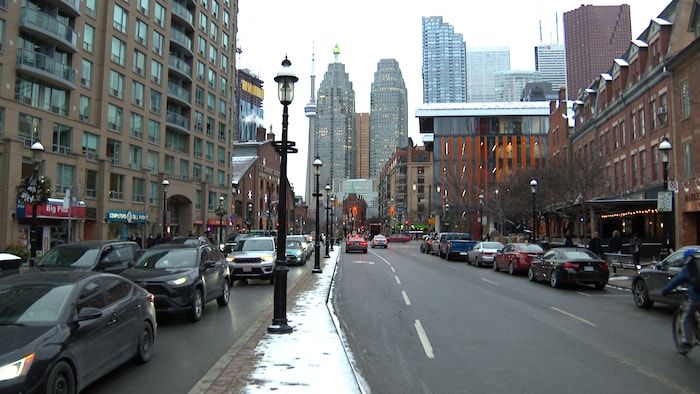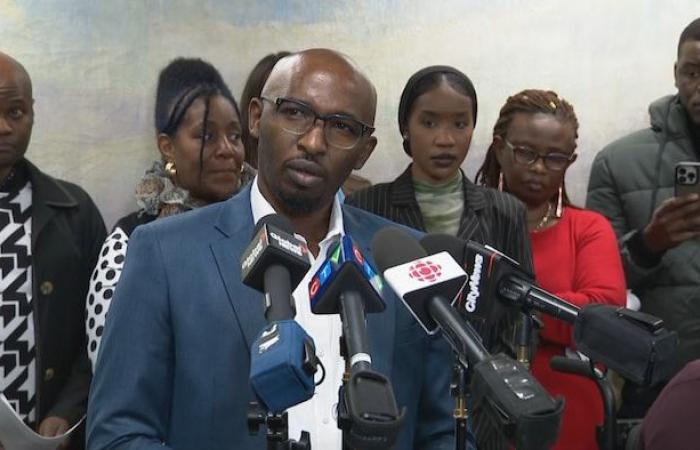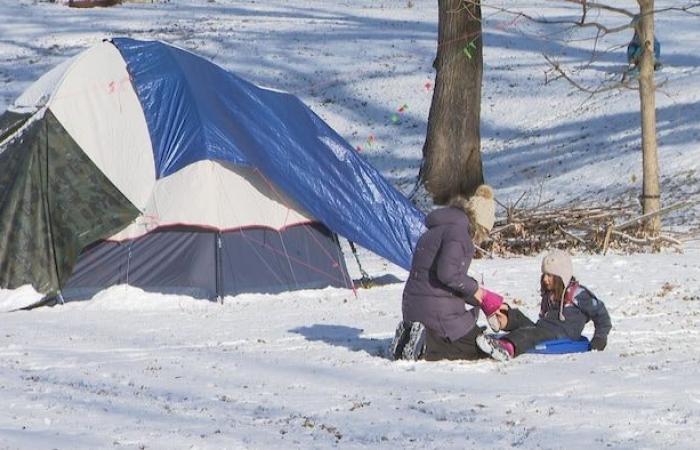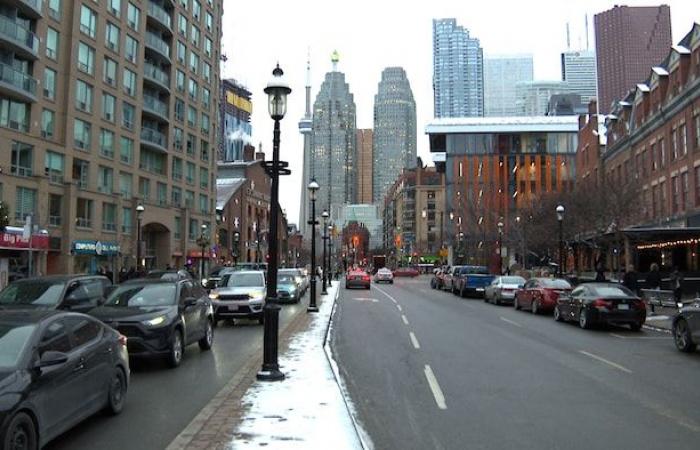It's the same thing every year: winter in Toronto – like everywhere in Canada – begins on December 21. However, say activists who defend the rights of the homeless, this year again, the number of beds in the city's shelters is much lower than the number of homeless people.
The city is struggling with a lack of affordable housing, inadequate income support, and mental health and drug toxicity crises
explains Elise Von Scheel, spokesperson for the City of Toronto.
However, this year, the City of Toronto promises to make additional efforts, according to Ms. Von Scheel. We have expanded the winter services program each year since its implementation, and this year there are more than 1,200 additional shelter and supportive housing spaces.
she emphasizes.
Despite these efforts, Toronto's shelters are still full, meaning homeless encampments are still clearly visible throughout the city, such as in the park Dufferin Groveas observed Saturday morning.
In fact, this is a provincial problem: there are approximately 1,000 such encampments in Ontario. Moreover, the Prime Minister Doug Ford decided to attack these camps head-on.
Pressure on the Municipality
This situation worries organizations that help the homeless. THE Ripple Community Collective (RCC), a community organization that fights homelessness and food insecurity and defends human rights, is urging the City of Toronto to do more.
Since September 2024, the RCC offers help to residents of park's homeless encampment Dufferin Grove.
There is an urgent need for the City of Toronto to demonstrate compassion and discernment in enforcing municipal bylaws as winter presents urgent challenges for the homeless population
can we read in a press release from RCC published this week.
Homelessness is a complex problem
admet Mme Von Scheel. We would like there to be a single solution that would immediately help people in need get off the streets.
The RCC is not the only one demanding action from the City of Toronto. A report from the municipal ombudsman published last week claims that dozens of asylum seekers had to sleep outdoors in winter. He bluntly blames the Municipality, accusing it of anti-black racism
since many of these asylum seekers come from Africa.
During a press briefing on Friday, Kizito Musabimana, president of African Canadian Collective and director of Rwandan Canadian Healing Centre, demanded that the City of Toronto do more for people in need.
Open in full screen mode
Kizito Musabimana, president of the African Canadian Collective, said he was “exhausted” during a press conference Friday.
Photo : -
Policies adopted in our favor too often sit on the shelves gathering dust. These are symbolic but ineffective gestures, acts of performance that do not save lives
denounced Mr. Musabimana on Friday. The group now demands a clear directive from the municipal council and the mayor to the municipal manager to ensure that all recommendations [du rapport de l’ombudsman] are adopted and implemented with precise deadlines
he added.
The municipal councilor Michael Thompsonwho was alongside Mr Musabimana during the press briefing on Friday, sharply criticized the way the report was buried
to the municipal council. We treat dogs better than some people in this town
he declared, visibly angry.
Ms. Von Scheel affirms that the Municipality understands the situation and is doing its best. We believe everyone deserves a roof over their head and everyone deserves a place they can call home. This is especially important during the winter, when temperatures can be freezing and make living outdoors, in an encampment or while homeless, particularly dangerous.
she explains.
Controversial camps
On Saturday, there were around thirty tents in the park Dufferin Grove from Toronto. It is this type of encampment that raises the ire of the government Ford. He has tabled bills – which have still not been adopted and which will have to be debated when parliamentary work resumes in January – which aim to allow their dismantling if they are established in municipal parks.
Mayors and residents of many Ontario communities have told us they are fed up with encampments and illegal drug use in our parks and public spaces
declared the Prime Minister Doug Ford on December 12. Families should be able to enjoy their local parks and playgrounds without fearing for their children.
Open in full screen mode
A child and his mother were playing in the park near the homeless encampment Saturday.
Photo : -
The first bill presented aims to strengthen sanctions for people who settle in parks. The second would give police officers the power to order people to leave public spaces if they use illegal drugs. Persons found guilty of violating this law, including in encampments, are subject to a fine of up to $10,000 or imprisonment of up to six months
we read in the provincial press release.
These bills were roundly criticized by all opposition parties.
Thousands sleep outside in winter
This is a problem that affects the entire province: As of October 2024, service managers reported the presence of approximately 3,300 people in a thousand encampments across Ontario
according to a press release from the Ontario government.

Open in full screen mode
It will be -15°C overnight from Saturday to Sunday in Toronto, according to the weather forecast.
Photo : - / CBC
Temperatures are expected to reach a minimum of -15°C overnight from Saturday to Sunday and -10°C overnight from Sunday to Monday in Toronto. The City therefore decided to act. She announced the opening of additional warming centers on very cold nights. When we see cold temperatures in the forecast, we have a team that monitors the weather very closely
says Ms. Von Scheel.
If someone arrives at a center and it is already full, the City will help them get to another warming center where there is still space.
she specifies.
Warming centers provide vulnerable and homeless people with a warm indoor place to rest and to access meals, washrooms, and referrals to emergency shelters and other community services
we read in the press release published by the City. However, these centers do not offer beds for the night.
With information from Andréane Williams and








